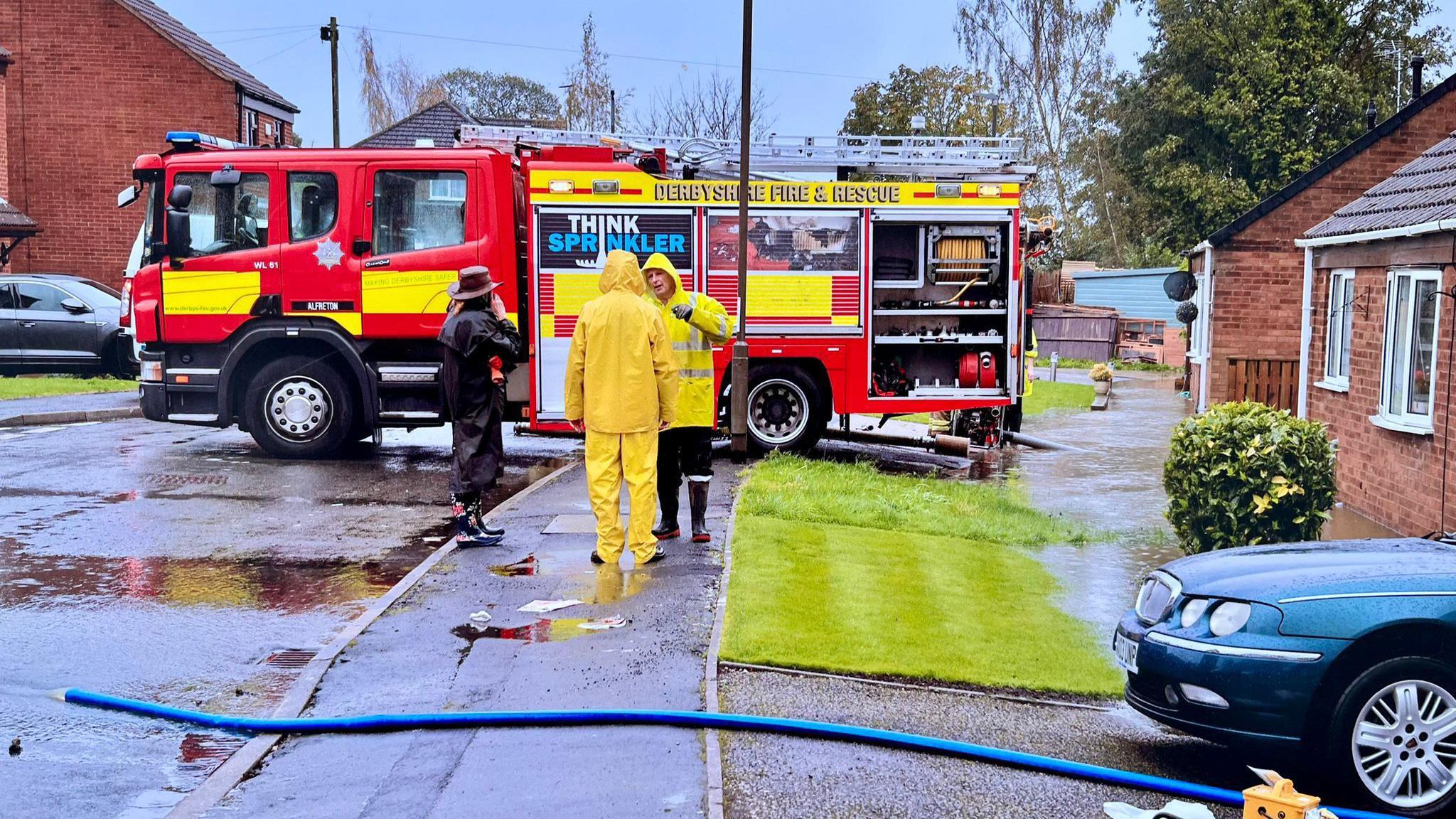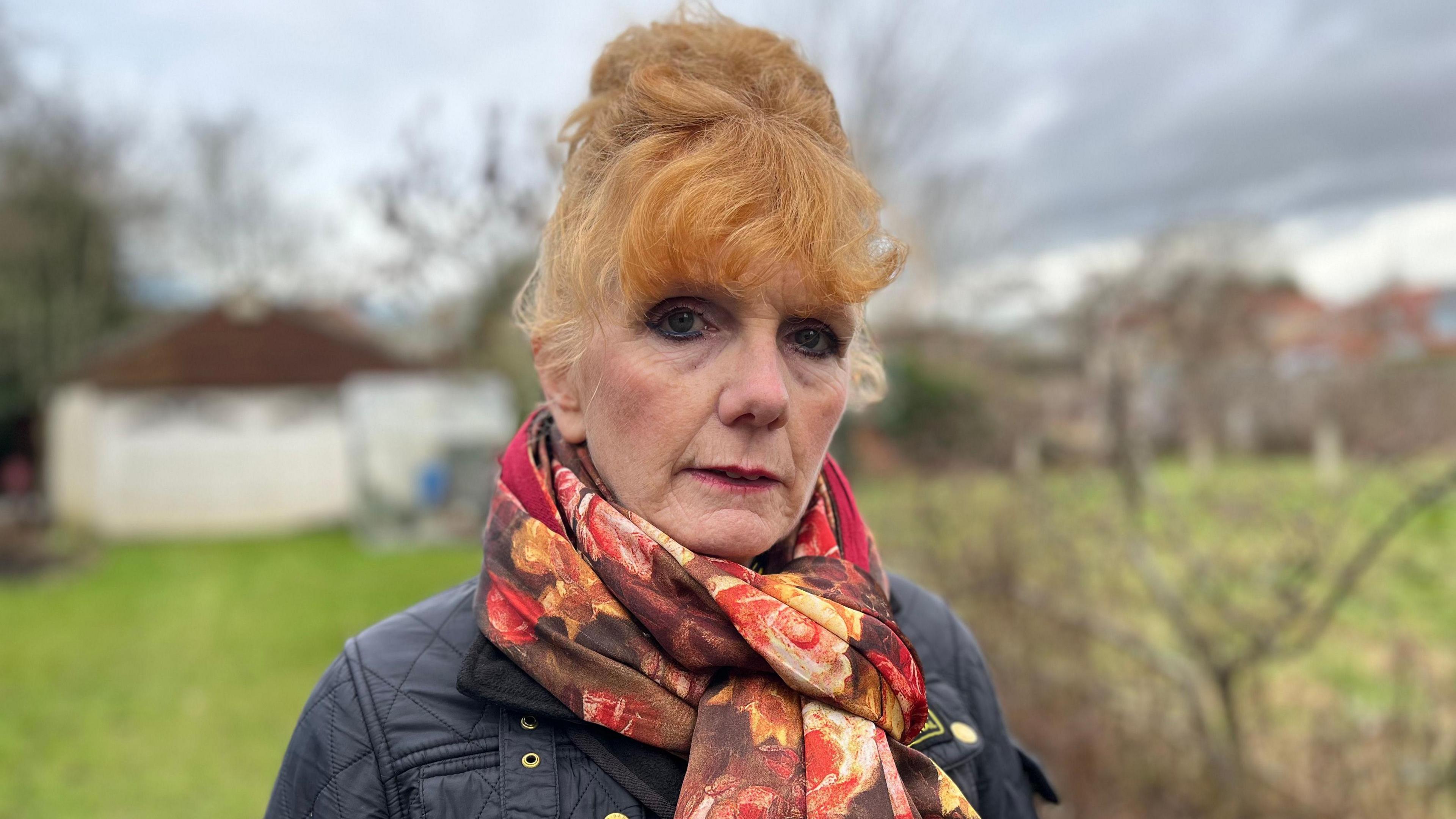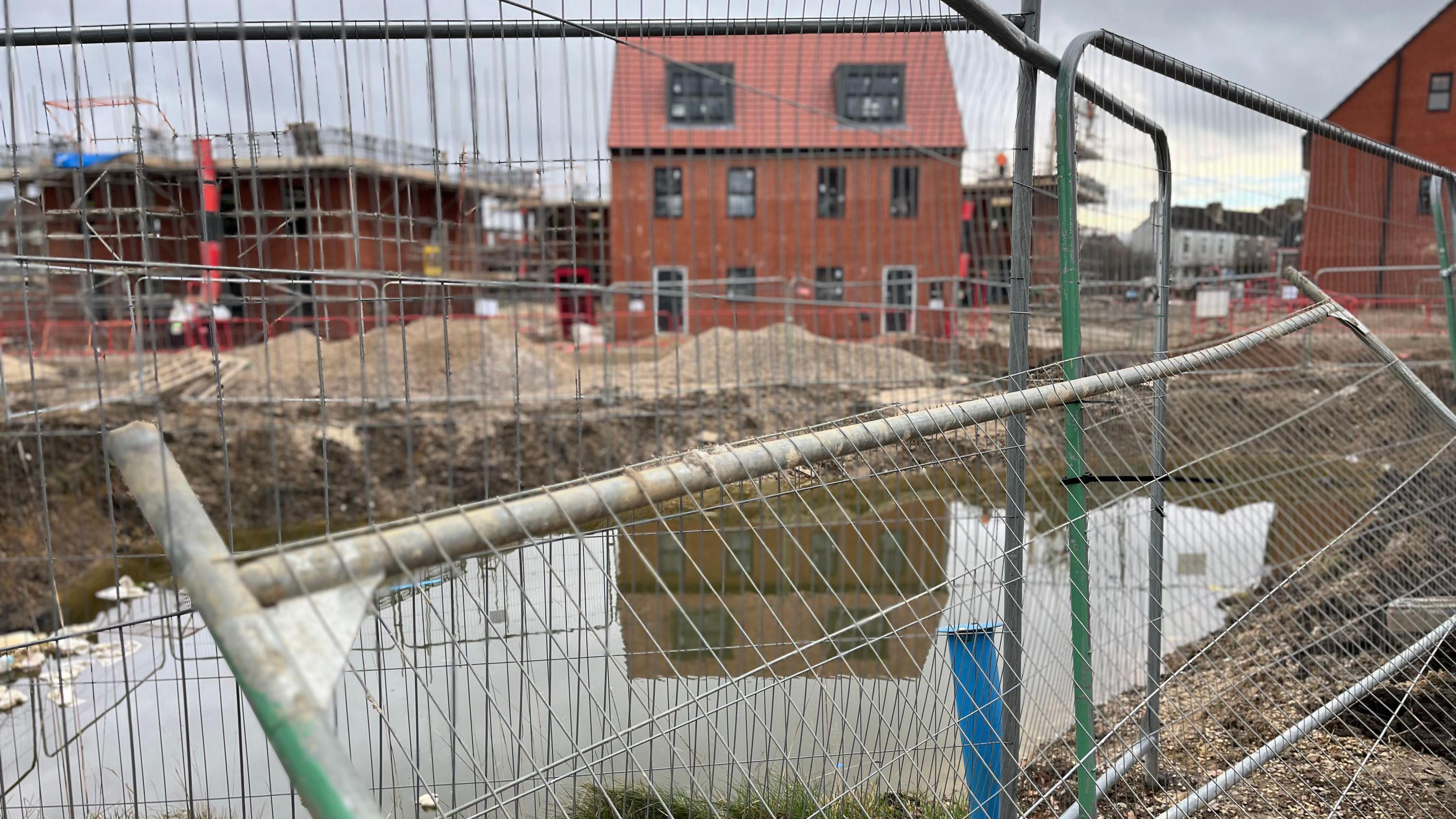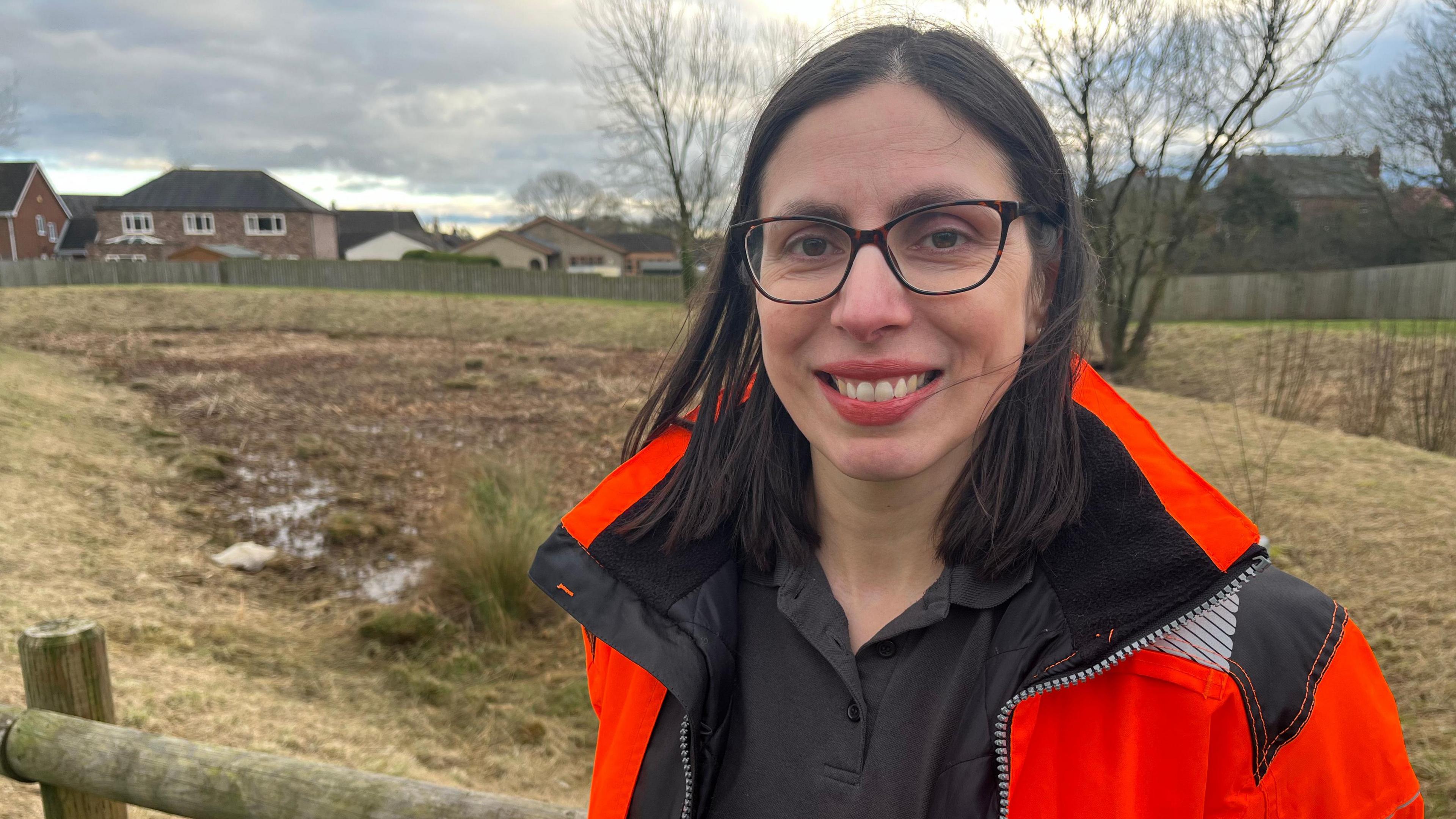Villagers fear new housing will cause more floods

Shirland saw flooding during Storm Babet in October
- Published
People living in a Derbyshire village are campaigning against plans for 90 new houses as they fear local drains and sewers will not cope.
Shirland residents who were flooded out by Storm Babet blame blocked culverts and an existing housing development built "on the village bog".
Developers have put in "balancing ponds" to collect surface water but a local councillor has collected evidence that village sewers still regularly overflow.
Severn Trent Water says legally it has no say in approvals for new developments but can raise concerns about capacity with developers.

District councillor Heather Liggett had to rescue her neighbour from flooding
Heather Liggett, who has always lived in Shirland, decided to stand as a district councillor to campaign against new housing in the village.
But despite her objections, the Fox Hollies development was approved and completed in 2022.
She now blames it for causing more surface water flooding and overloading drainage in the village.
During Storm Babet in October, her 86-year old neighbour Betty Smith called her for help when water poured down her driveway.
Wading through the flood, Ms Liggett fell down an open manhole but still managed to fill Mrs Smith's sandbags.
"We knew what would happen," Ms Liggett said. "That land was our village bog. It was where I went as a child collecting frog spawn."
She says she has recorded the sewer near her house overflowing 18 times in 10 years.

New housing on Park Lane has been built with ponds to capture surface water
Now more new houses are on the way.
A development of 43 houses on Park Lane is almost complete and councillors at North East Derbyshire District Council are considering a planning application for 90 more on a greenfield site next to the village.
In January 2023, the government said so-called sustainable drainage systems (SuDS) would become mandatory for every new housing development.
The idea is to mimic nature and soak up the water where it falls with raingardens, permeable paving and balancing ponds.
This is cheaper than building new sewers but water companies and local authorities have proved reluctant to adopt them and become responsible for maintenance.

Ms Diaz-Nieto, from the Environmental Protection Group, says stronger legislation is needed
Jacqueline Diaz-Nieto has been involved in writing a new best practice guide for designers of effective SuDS.
She said a new authority was needed to approve these systems and make sure they continue to work in the future.
"We need stronger legislation to govern the long-term operation and maintenance [of SuDs]," she said.
"That will go a long to way to ensuring we have systems that will function into the future."
Follow BBC East Midlands on Facebook, external, on X, external, or on Instagram, external. Send your story ideas to eastmidsnews@bbc.co.uk, external